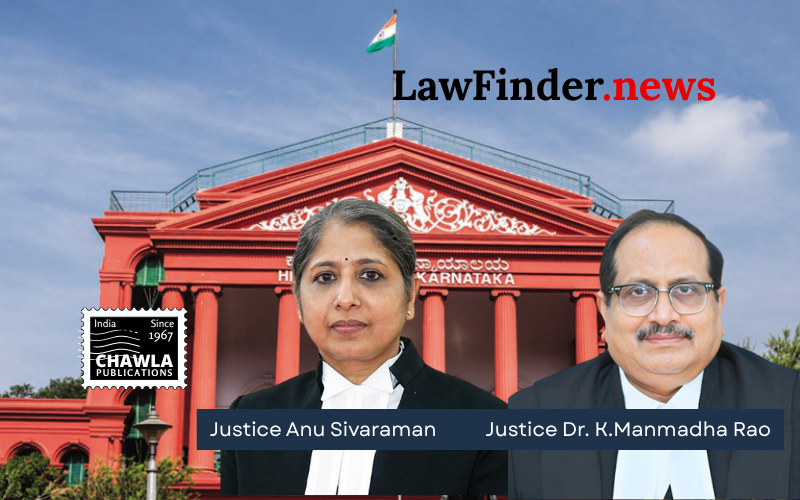Non-joinder of KEONICS Renders Arbitration Proceedings Defective and Unsustainable
In a significant judgment, the Karnataka High Court has set aside an arbitration award of Rs. 178.98 Crores against the State of Karnataka, stemming from a dispute over the implementation of the Information and Communication Technologies (ICT) project. The division bench, consisting of Mrs. Anu Sivaraman and Dr. K. Manmadha Rao, ruled that the arbitration proceedings were fundamentally flawed due to the non-joinder of Karnataka State Electronics Development Corporation Limited (KEONICS), the nodal agency responsible for structuring, tendering, and administering the project.
The dispute arose from a contract aimed at implementing ICT in 4396 schools, with KEONICS acting as the intermediary agency between the State Government and the consortium led by M/s. Siddharth Infotech Pvt. Ltd. Despite KEONICS being central to the project’s execution, it was not made a party in the arbitration proceedings, leading the court to conclude that the arbitration lacked completeness and the award suffered from patent illegality.
The High Court emphasized that KEONICS's absence deprived the proceedings of vital completeness, as it was the entity through which the claimant, Siddharth Infotech, derived its rights and obligations. The exclusion of KEONICS, which held the primary contract with the State, resulted in the absence of direct contractual privity between the State and the claimant, a crucial element for valid arbitration.
The arbitration tribunal had earlier ruled in favor of Siddharth Infotech, awarding substantial damages for the project's termination, which the State contended was arbitrary and unlawful. The tribunal's decision was upheld by the commercial court, but the High Court found that the tribunal’s failure to include KEONICS rendered the arbitration proceedings defective, qualifying as patent illegality under the Arbitration & Conciliation Act, 1996.
The judgment underscores the necessity of including all necessary parties in arbitration to ensure comprehensive adjudication and uphold the principles of justice and legality. The High Court’s decision effectively overturns the tribunal's award, providing relief to the State Government from the financial burden imposed by the earlier rulings.
Bottom Line:
Arbitration & Conciliation Act, 1996 - Non-joinder of necessary parties, such as KEONICS, renders the arbitration proceedings and award fundamentally defective and unsustainable.
Statutory provision(s): Arbitration & Conciliation Act, 1996 - Section 34, Section 37




